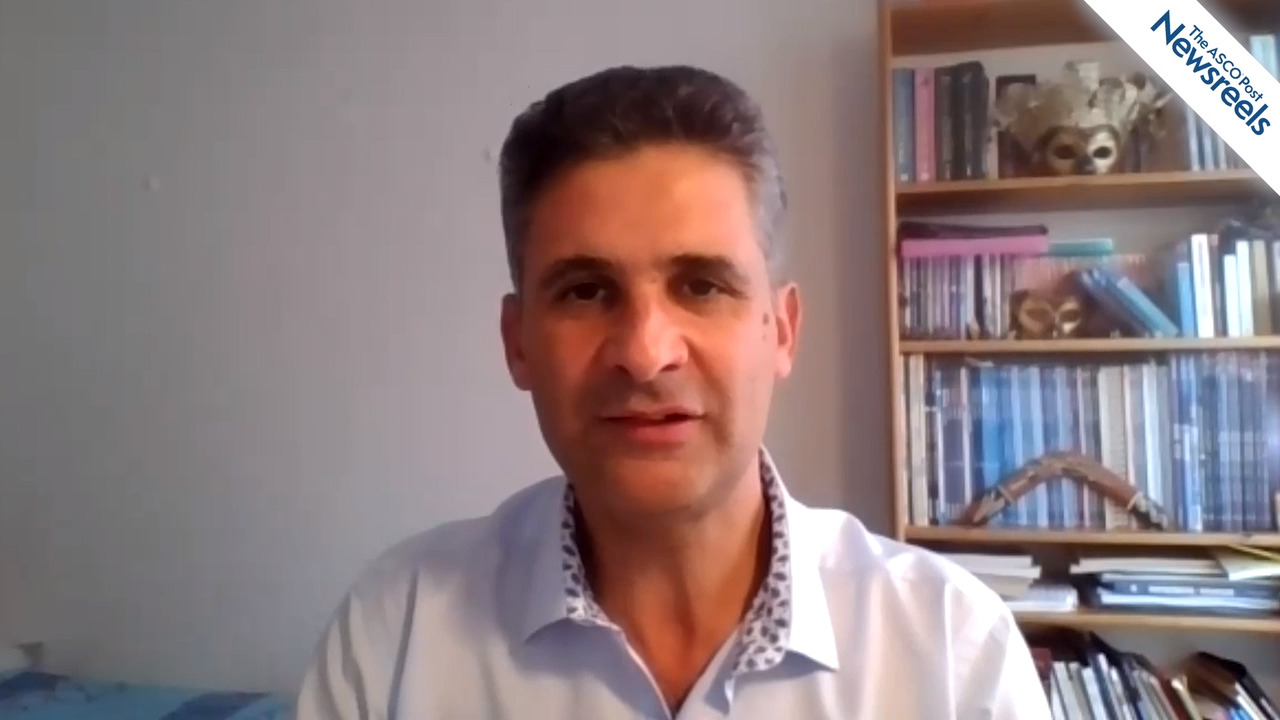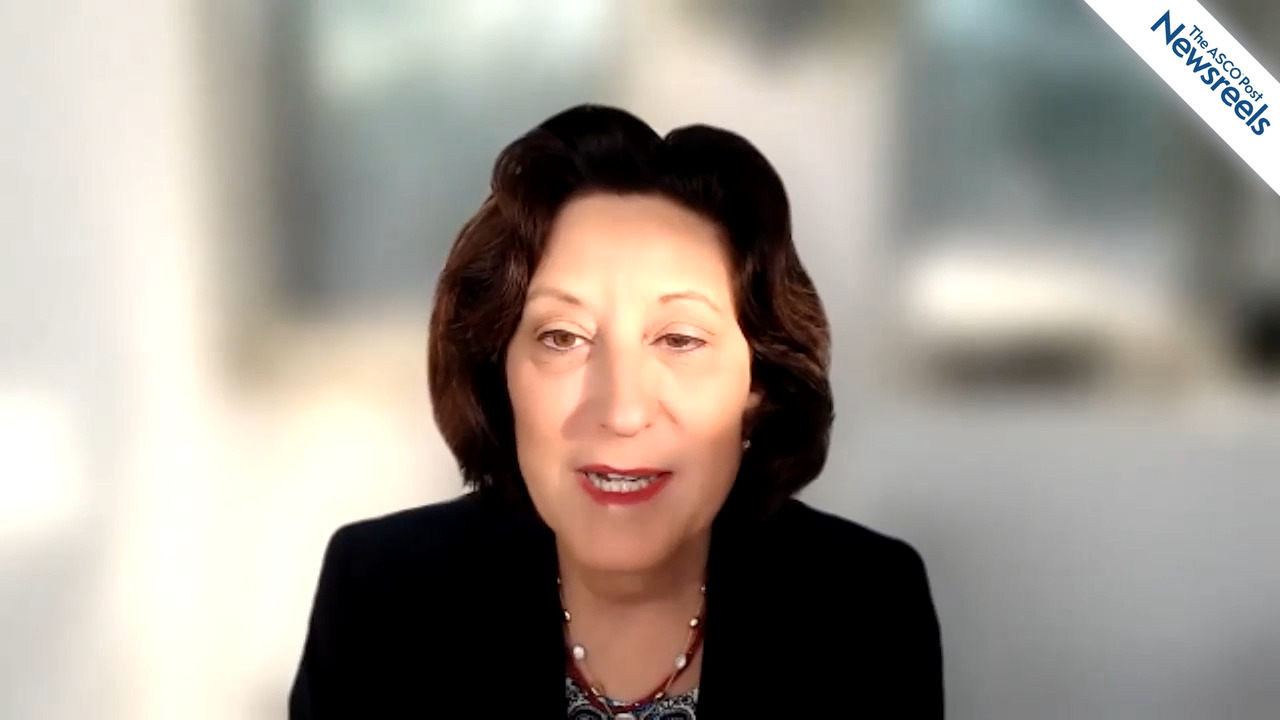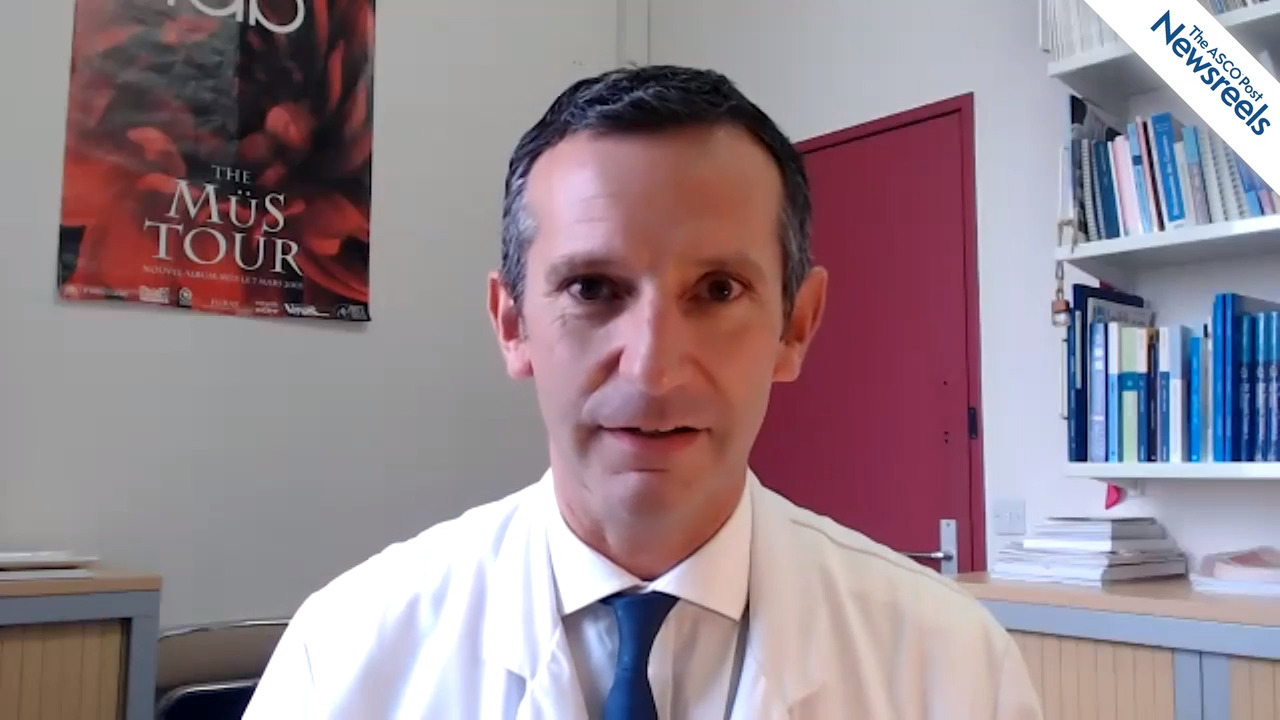Filippo Pietrantonio, MD, and Federica Morano, MD, on Colorectal Cancer and the MAYA Trial Strategy: Temozolomide, Ipilimumab, and Nivolumab
ESMO Congress 2021
Filippo Pietrantonio, MD, and Federica Morano, MD, both of the Istituto Nazionale dei Tumori, discuss results from the MAYA trial, which provided proof of concept that temozolomide-induced hypermutation may be exploited to achieve durable responses to low-dose ipilimumab plus nivolumab in patients with microsatellite stable metastatic colorectal cancer (Abstract 383O).
The ASCO Post Staff
Susana N. Banerjee, MBBS, PhD, of The Royal Marsden NHS Foundation Trust, discusses phase I results that have generated interest in the combination of the RAF/MEK inhibitor VS-6766 and the FAK inhibitor defactinib for patients with recurrent low-grade serous ovarian cancer, a disease that typically has limited response to conventional chemotherapy and hormonal therapy. The data support ongoing investigation (Abstract 725MO).
The ASCO Post Staff
Karim Fizazi, MD, PhD, of the Institut Gustave Roussy, discusses phase III results from the PEACE-1 study, which showed that androgen-deprivation therapy plus docetaxel and abiraterone provided 2.5 years of additional time without radiographic disease progression or death and 1.5 additional years of survival in men with de novo high-volume metastatic castration-sensitive prostate cancer (Abstract LBA5).
The ASCO Post Staff
Jenny F. Seligmann, MBChB, PhD, of the University of Leeds, discusses phase II findings that suggest adavosertib improved progression-free survival, compared with active monitoring, by inhibiting the WEE1 kinase in patients with RAS- and TP53-mutant metastatic colorectal cancer. In the trial, adavosertib’s activity tended to be even greater in left-sided tumors (Abstract 382O).
The ASCO Post Staff
Hope S. Rugo, MD, of the University of California, San Francisco, discusses phase III results from the KEYNOTE-355 study of pembrolizumab plus chemotherapy, which improved overall survival vs chemotherapy alone in patients with previously untreated locally recurrent, inoperable, or metastatic triple-negative breast cancer whose tumors expressed PD-L1 (Abstract LBA16).
The ASCO Post Staff
Benjamin Besse, MD, PhD, of the Institut Gustave Roussy, discusses final phase III findings from the Atalante-1 trial, which explored the question of whether the OSE2101 vaccine is more beneficial than standard treatment for patients with HLA-A2–positive non–small cell lung cancer after immune checkpoint inhibitors are no longer effective (Abstract LBA47).





